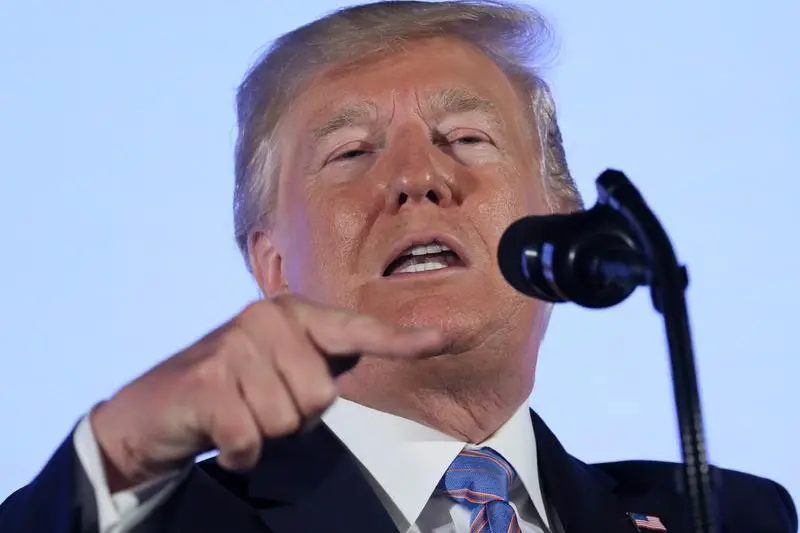PHOTO
HONG KONG - President Donald Trump is threatening new levies on $300 billion of Chinese goods entering the United States, after Shanghai talks proved inconclusive this week. That might not prod Chinese officials into striking a deal, but it is likely to raise some unwelcome zombies.
Trump is among those who claim the Chinese economy is on the brink of the abyss. And it's true that as a truce in trade negotiations gets more elusive the country's business community is being forced to price in a new status quo. Their country has stumbled into a cold war with the world's largest economy, a nuclear-armed military colossus that controls the world's foremost trading currency. But a $13 trillion economy growing at 6.2% is hardly imploding, and a country where private consumption makes up roughly two-fifths of nominal GDP has padding against a downturn in trade. Tensions exacerbate economic problems of China's own making, though. There is a massive stack of non-performing debt incurred by government banks that mis-allocated capital after the global financial crisis. And there are still plenty of inefficient state-backed companies that compete with China's private sector, driving down profitability across the board.
If the new 10% tariffs kick in on Sept. 1 as Trump threatened on Thursday, President Xi Jinping may re-open a playbook that reformist officials have been trying to close. The central government has already pushed localities to ramp up infrastructure spending, and there may be more to come. Construction investment creates jobs immediately, and the government can order banks to lend, and order state firms to build. It is a seductively easy strategy, even though returns from such investments are diminishing, and their opportunity cost is rising; much economic stress in the last two years has come from an official campaign to cut bad debt incurred by building things like airports in areas too poor to need them.
Xi has many other ways to make China long-term prosperous, including the mass sale or transfer of state assets to private hands, dethroning state-owned enterprises, and improving public services like education and healthcare. Such improvements would produce qualitative economic benefits not easily captured by growth statistics. But Xi’s talk of "self-sufficiency" suggests he prefers to use state investment to reinvent products and services currently imported from America. That would numb tariff pain, at a cost of paralysing the patient.
CONTEXT NEWS
- U.S. President Donald Trump said on Aug. 1 he would impose a 10% tariff on $300 billion of Chinese goods from Sept. 1, and could raise tariffs further if China's President Xi Jinping fails to move more quickly to strike a trade deal.
(Editing by John Foley and Katrina Hamlin) ((pete.sweeney@thomsonreuters.com; Reuters Messaging: pete.sweeney.thomsonreuters.com@reuters.net))





















